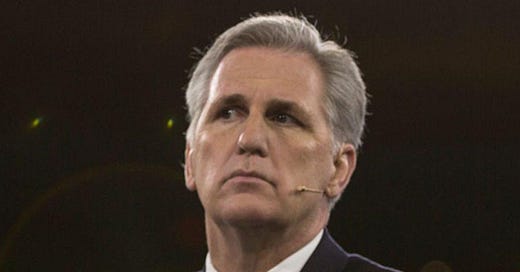For several decades I thought of myself as a Republican. I voted mainly for Republican candidates. I thought of myself as a supporter of the party of personal responsibility and rugged individualism. That is not what the present-day party represents.
When I say "thought of myself as a Republican," what I mean is this. I had very liberal social ideas. I had empathy for people who needed help, for minorities, for immigrants. I believed the rights of all citizens are equal. No one is above another, and no one is above the law. I had trouble reconciling these thoughts and ideas, of course.
What I realized is that the people I was being led by told me to be a Republican. From the time I was a young business manager, moving up through the ranks, I followed my bosses' views. That was the source of my conflicting views. I made those choices. I am not making excuses. It took some time for me to grow into my own social and political beliefs and find comfort in them.
Regardless of my past conflicts, I can see that the current Republican Party is not what it was when I considered myself a member.
So, why? What is the difference, or what has changed? The threat of death is the main problem facing the GOP since 2008 or perhaps before that. Death in the form of losing elections, of irrelevance. Starting with the Tea Party in 2009, Republicans realized the country was becoming more liberal than they wanted to believe. That trend has continued until today. The thoughts and hopes, and beliefs of the majority of Americans had changed. We were becoming more compassionate, more thoughtful, more liberal. Cue voter suppression efforts on the part of Republicans.
The base of the Republican party had become those Americans who had some perceived beef with the government. The only people left for the Republicans to appeal to were citizens who felt they had been left behind in life. Sound familiar? The people who continued to support GOP platforms were disaffected, and those politicians who sought to tap into that disaffection. So, the GOP has become a significant but shrinking number of voters who are anti-immigration, racist, looking to blame someone else for their lot in life. Republican politicians see this, poll it, tap into it and take advantage of these disconnects. Examples of those who have taken advantage of this split in the body politic are Steve Bannon (on behalf of Trump), Ted Cruz, Mitch McConnell, and many others.
Despite the politicians making their best efforts to retain the base, it is evident to them and to us that this is a losing proposition. Voter suppression, gerrymandering, false claims, and irrational hate are all they have left.
When faced with almost certain death, a person or, in this case, a political party will revert to desperate measures. So, this is where we find the Republican party today-desperate measures deployed for survival. When we see Senate members seeming to prefer Putin over American values, claiming that asylum-seeking immigrants are criminals and blacks should work harder and stop complaining-we know the level of desperation. These tropes play directly into the beliefs and fears of the disaffected. If we want to unify this country, we need to help the disaffected realize that the GOP is just feeding their desperation, not providing solutions.
The GOP, as I thought I knew it, is dying. Admittedly this is a slow, painful death for them and the country.





Great writing Alan. I thoroughly enjoyed reading your piece. I am listening to Stuart Steven's It Was All A Lie. Stevens, a GOP strategist, who like Steve Schmidt, realized that the things that represented the party which used to be stay out of my bedroom, my bank account and my household, have now long been destroyed. The hateful direction many who follow a ideological GOP, is exposed as one looks into history. I came across a Mother Jones piece that pretty much puts that into perspective: https://www.motherjones.com/politics/2020/08/racism-republican-party-stuart-stevens/
Mitch McConnell has to be brought into line. Republicans are not operating in good faith.